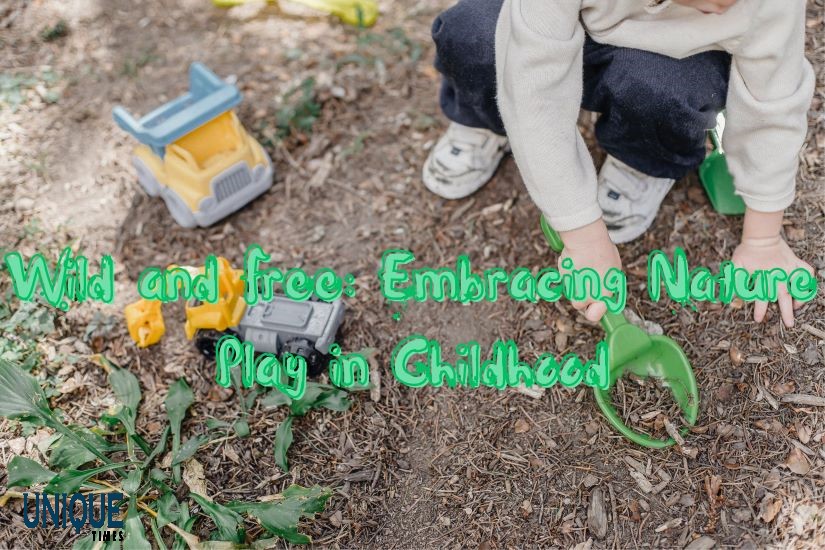Wild and Free: Nurturing a Love for Nature Play in Kids

In a world dominated by screens and structured activities, the importance of letting children connect with nature cannot be overstated. Nature play, with its unstructured and outdoor elements, offers a myriad of benefits for a child’s physical, mental, and emotional well-being. Let’s explore the joys of encouraging nature play in kids and how it contributes to their holistic development.
1. Unleashing Creativity and Imagination:
Nature serves as an endless playground where children can let their imaginations run wild. Whether it’s building forts with fallen branches, turning rocks into magical creatures, or creating imaginary worlds among the trees, nature play sparks creativity and allows kids to explore their boundless imaginations.
2. Physical Health and Development:
Outdoor play in natural settings provides ample opportunities for physical activity. Climbing trees, running through meadows, and jumping over streams contribute to the development of motor skills, coordination, and overall physical fitness. Nature play encourages a healthy, active lifestyle from an early age.
3. Learning Through Exploration:
Nature is a captivating classroom without walls. Children naturally engage in hands-on exploration, discovering the wonders of the natural world. From observing insects and plants to understanding the changing seasons, nature play fosters a sense of curiosity and a love for learning that goes beyond traditional classroom settings.
4. Emotional Well-being and Stress Reduction:
Spending time in nature has been linked to reduced stress and improved emotional well-being in children. The calming effect of natural environments provides a welcome contrast to the overstimulation often found in digital spaces. Nature play allows kids to unwind, relax, and develop resilience in the face of challenges.
5. Environmental Awareness and Stewardship:
Connecting with nature at a young age fosters a sense of appreciation for the environment. Children who engage in nature play are more likely to develop a lifelong commitment to preserving and protecting the natural world. This early environmental awareness lays the foundation for future generations of environmentally conscious individuals.
6. Social Skills and Cooperation:
Outdoor play encourages social interaction and cooperation among children. Whether they are building a sandcastle on the beach or working together to solve a nature-inspired puzzle, collaborative activities in a natural setting help develop essential social skills such as communication, teamwork, and conflict resolution.
7. Risk Assessment and Confidence Building:
Nature play inherently involves a degree of risk, such as climbing a tree or navigating uneven terrain. These experiences contribute to the development of risk assessment skills and help children build confidence in their abilities. Learning to navigate challenges in a natural environment prepares them for a variety of situations in life.
8. Disconnecting from Screens:
In an age where screen time dominates, nature play provides a valuable opportunity for children to disconnect from electronic devices. Spending time outdoors allows them to engage their senses, appreciate the beauty of the natural world, and develop a healthy relationship with technology.
9. Cultivating a Lifelong Connection with Nature:
By fostering a love for nature play in early childhood, parents and caregivers can instill a lifelong connection with the environment. This connection not only benefits the individual child but also contributes to the broader effort of creating a society that values and protects the natural world.
In conclusion, encouraging nature play in kids is a gift that keeps on giving. From fostering creativity and physical health to nurturing environmental stewardship, the benefits of allowing children to be wild and free in nature are immeasurable. So, let’s embrace the outdoors, let our children explore, and allow them to experience the wonder and magic that nature play brings to their lives.
Picture Courtesy: Google/images are subject to copyright








